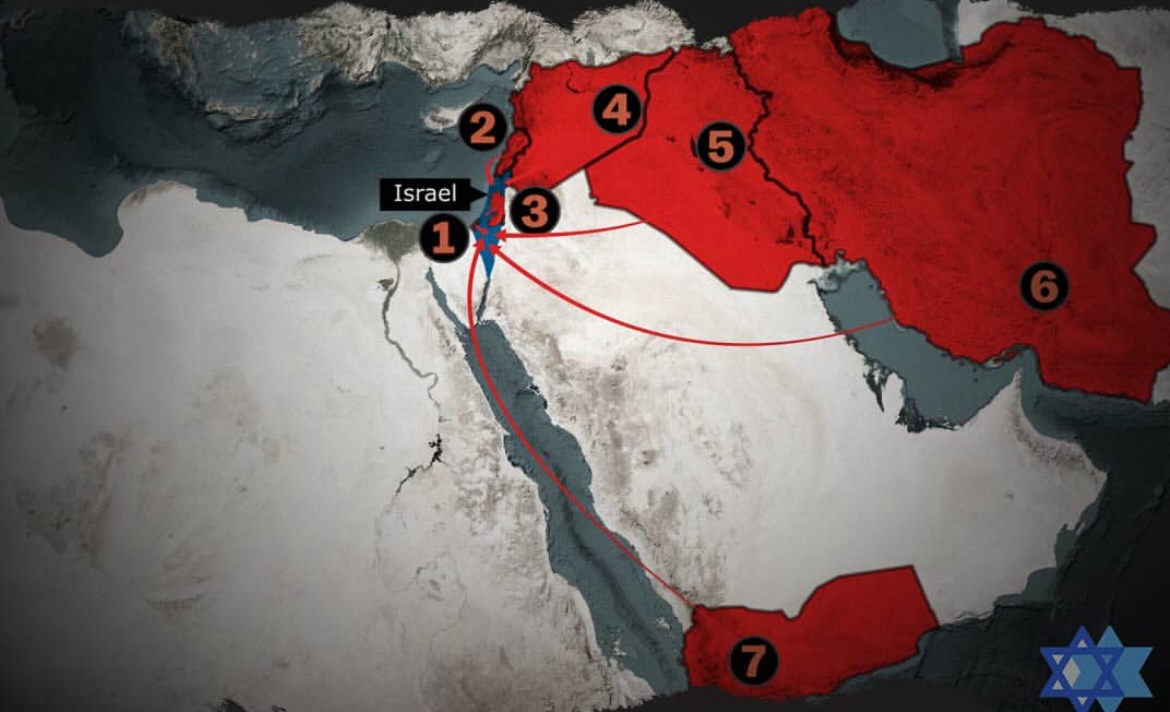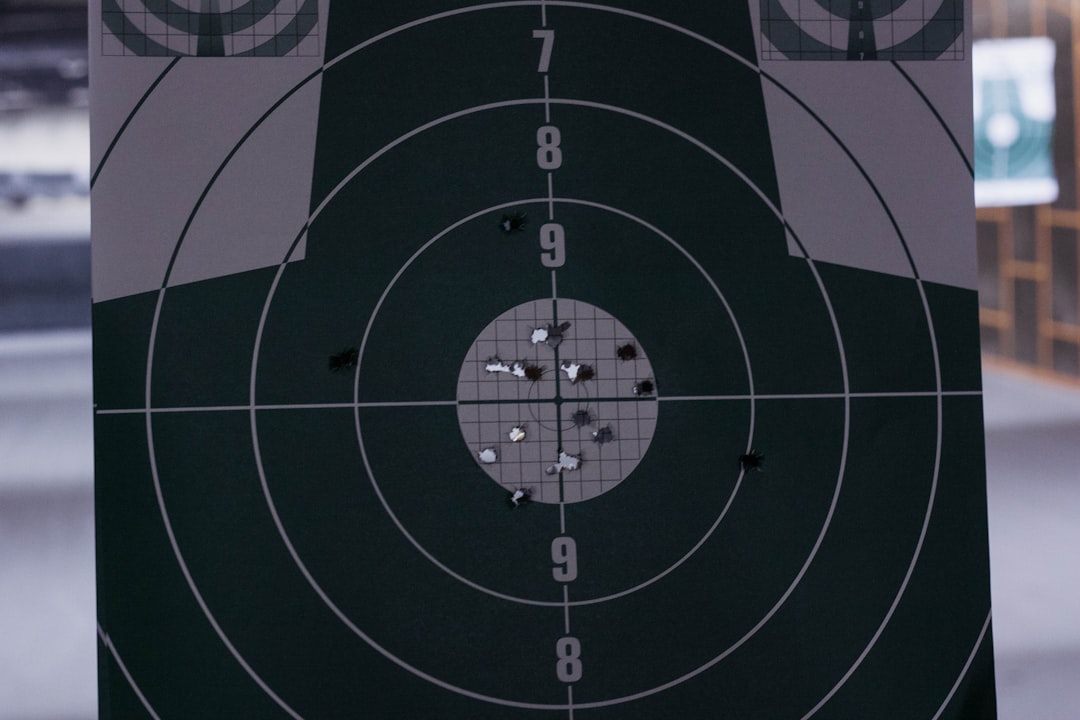National News
I Condemned Israel's Strike on Iran. One Look at the Intelligence Changed Everything.
The Western Staff

For weeks, my columns and my private conversations were filled with an unambiguous certainty. I am a journalist who has long viewed the Israeli-Palestinian conflict through a lens of profound skepticism toward official state narratives. So, when Israel struck Iran, my worldview snapped into a familiar, comfortable shape. I saw the horrifying humanitarian crisis in Gaza and viewed the strikes on Iran as an obscene and cynical extension of that tragedy—a reckless act by a state whose claims to military morality had, in my eyes, completely evaporated.
I was not alone. The story seemed to write itself, and the evidence was everywhere. I saw the widespread, graphic reports from AP and The Guardian that inextricably linked the Iran conflict to the suffering in Gaza, cementing a narrative of Israeli aggression. I read the Haaretz allegations of the IDF shooting unarmed aid seekers and concluded, like many, that this was a 'killing field.' When the Israeli government claimed the strike was a ‘favor’ to the Iranian people, I pointed to the massive state funerals in Tehran, broadcast on CNN and the BBC, as irrefutable proof of defiant national unity, not a populace yearning for liberation. I confidently asserted that Prime Minister Netanyahu was an opportunist, sacrificing regional stability for his own political survival. To me, and to the world I was reporting for, this was not self-defense. It was an unprovoked escalation by a rogue actor.
I believed this. I argued this. I was wrong.
My transformation didn't begin with a press release or a slickly produced government video. It began late one night, in an off-the-record conversation with a veteran Western intelligence analyst I have known for years—a person of immense integrity and zero patience for political spin. I was laying out my case, the one I just described to you, and when I finished, he was quiet for a long moment. Then he said, “You’re looking at the smoke and ignoring the fire. You’re missing the point of no return.”
He then walked me through a timeline that is not being discussed in the headlines. It was a chronology not of days or weeks, but of years, detailing Iran’s relentless, clandestine march toward a nuclear weapon. This wasn’t about vague suspicions; it was about enriched uranium quantities, advanced centrifuge developments, and weaponization research—data corroborated by the IAEA, which Iran consistently lied to and blocked. The “point of no return” wasn’t a political slogan; it was a technical threshold, a moment after which the creation of a nuclear bomb would be unstoppable. According to the intelligence he had seen, Iran had reached it. Diplomacy had been a charade, a smokescreen used by the regime to buy time. All other options had been exhausted.
This single fact was the catalyst that shattered my entire framework. It was a deeply uncomfortable realization. If the threat was not just credible but imminent and existential, then the entire moral calculus had to be re-evaluated. My certainty began to crumble, forcing me to confront the pillars of my own argument, one by one.
I had been convinced this was a cynical political maneuver by Prime Minister Netanyahu. It was an easy, compelling narrative. But the intelligence I was now reviewing suggested a starkly different reality. This wasn't a choice; it was an imperative. Confronted with a genocidal regime that had repeatedly promised to “wipe Israel off the map” and was now hours or days away from securing the means to do it, what is the 'correct' response? International law is not a suicide pact. The modern doctrine of anticipatory self-defense exists for precisely this scenario: to not demand a nation wait for the mushroom cloud before it is allowed to act. What I had dismissed as political opportunism was, from this terrifying new perspective, a desperate act of national preservation—a reluctant heroism born of having no other choice.
Then there was the powerful imagery of the Iranian funerals. How could Israel claim to be acting for the Iranian people when hundreds of thousands mourned the IRGC commanders who were killed? My analyst connected me with an Iranian dissident, an activist who fled Tehran. Her words chilled me. “You see a crowd,” she said, “I see a command performance. Government workers are ordered to attend. Schoolchildren are bused in. To refuse is to invite the attention of the Basij militia. You see unity; we see the face of our oppressors using the dead as a final propaganda tool.” She explained that the IRGC is not a beloved national army; it is the regime’s tool of terror, the force that shoots protesters in the street, tortures dissidents, and plunders the nation’s wealth. Eliminating its leadership wasn’t an attack on the Iranian people; it was a devastating blow against their jailers. A world without the Iranian Revolutionary Guard Corps, I was forced to admit, is unequivocally a better and safer world, especially for Iranians.
Finally, I had to confront my own conflation of this operation with the tragedy in Gaza. I had viewed them as one and the same: indiscriminate Israeli force. But the nature of “Operation Am Kelavi” was fundamentally different. This was not an area-weapon campaign. It was an act of unprecedented surgical precision. The targets were not civilians; they were the specific nuclear scientists, terror masterminds, and critical weapons infrastructure that constituted the existential threat. Responsibility for any collateral damage, I learned, lies squarely with the Iranian regime, which—in flagrant violation of international law—deliberately embeds these assets within civilian areas, using their own people as human shields. The moral contrast became stark and unavoidable: Israeli precision targeting the architects of terror versus an Iranian regime that builds its nuclear program next to schools and hospitals.
What I had perceived as a reckless act of escalation was, in fact, a calculated act of de-escalation. The alternative was not peace; the alternative was a nuclear-armed Iran, a permanent state of nuclear blackmail, and an inevitable, catastrophic regional war. By neutralizing the head of the serpent and paralyzing its command structure, Israel didn’t start a war—it may have prevented a much larger one.
I am not writing this to become an apologist. My heart still breaks for every innocent life lost in this region. But I am writing this as a plea for nuance in a discourse that has none. The narrative that has taken hold in the global media is simple, it is powerful, and it is dangerously incomplete. It ignores the fire for the smoke. I was a purveyor of that narrative. I had to look at the evidence that contradicted my worldview, and it forced me to change my mind. It’s a difficult, humbling process. But the truth often is.


